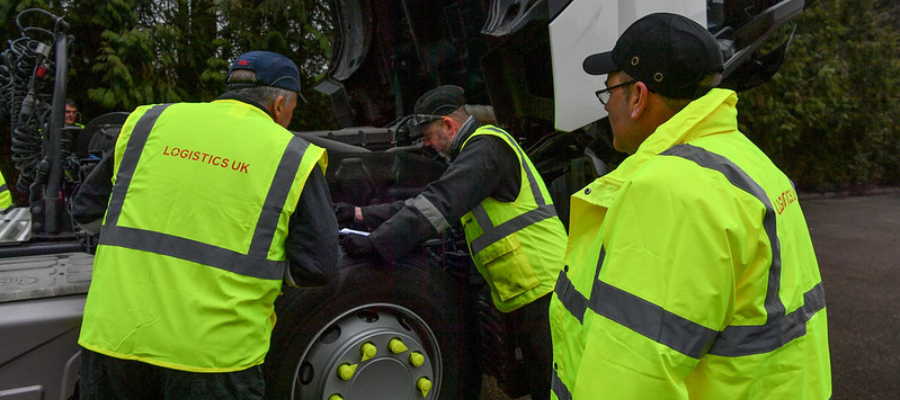🕒 Article read time: 2 minutes
Maintaining compliance

Logistics is one of the most heavily regulated industries in the UK and whether businesses operate a large fleet of 100 vehicles, or just a single vehicle, it is vital to ensure your operation remains compliant.
A variety of topics are included within the compliance advice umbrella, including operator licensing, drivers’ hours and tachographs, weights and dimensions and vehicle testing.
THE HEART OF COMPLIANCE
Operator licensing lies at the heart of compliance in the UK. Affecting vehicles over 3.5 tonnes maximum authorised mass (or vehicles over 2.5 tonnes and up to and including 3.5 tonnes travelling to or from the EU), operator licensing is the regulatory stick used to ensure operators remain compliant.
“Without it, operators cannot operate, and it is important that the undertakings agreed upon when applying for a licence are respected,” said Martin Candish, Head of Compliance Information, Logistics UK.
KEEPING UP STANDARDS
Included within an operator licence is that vehicles and trailers are to be kept in a fit and serviceable condition. Feedback from DVSA indicates that the number one fail item for HGVs is “condition of tyres”, however other concerning common defects include “service and park brake performance”, as well as “braking system and components”.
“Road safety must always remain a top priority and regardless of who maintains the vehicle, whether it be an in-house workshop or a third-party workshop, if the maintenance work is not up to standard it is the operator who will face disciplinary action,” Candish warns, “An effective quality monitoring system is vital as it demonstrates a will to remain compliant.”
In addition to legislative maintenance checks such as MOTs, and intermittent safety inspections for HGVs, the business group recommends operators ensure drivers are completing daily walk-around checks effectively and any defects are reported and resolved in line with company policy and DVSA road safety standards.
INSPECTION INSIGHTS
For more than 50 years, Logistics UK has run a popular Vehicle Inspection Service. This is designed to help operators to fulfil their responsibility as an operator licence holder to check vehicle maintenance provision and control its quality, ensuring the safety of drivers and the public, and reducing the risk of prosecution. Users of this service also achieve a first-time MOT pass rate of up to 97% estimated to be 13% above the national average. Logistics UK’s vehicle inspections also help operators increase their DVSA pass rate in the instance of a stop, resulting in fewer penalties and prohibitions, less fleet downtime, and reduced costs from unscheduled repairs.
TACHO TALK
One of the most common queries received by Logistics UK’s Member Advice Centre is regarding drivers’ hours and tachographs. While complex, the rules on drivers’ hours and tachographs must be observed, ensuring sufficient rest is taken, manual entries are completed, and all records are downloaded and stored. Regular analysis of the records is a must to identify any trends or repeat infringements so action can be taken, again to protect the operator licence and remain compliant. To support members with this, Logistics UK offers an in-depth tachograph service which includes tachograph analysis, an on-site/remote compliance service and tachograph contract management.
LOADED QUESTIONS
Other compliance issues include ensuring vehicles and trailers are not overloaded. In some instances where the load is large and light, such as packaging or food snacks, this may not be an issue as the load fills the vehicle before there is any risk of overloading the axles. In other instances, loads such as aggregates and other bulk products are loaded right to the maximum capacity of the vehicle and must be checked prior to going on the road. Diminishing loads also provide another challenge; as the load is removed from the rear of the vehicle, the load on the forward axle can increase, potentially causing it to be overloaded. Where a risk is identified, checking axle weights and the overall weight are recommended to remain compliant.
“Remember, it is the operator who is responsible,” Candish concluded, “Logistics UK understands the various challenges that road operators face and seeks to ensure operators are armed with the latest knowledge of changing legislation via Member Briefings, the Transport Manager Conference series, information via the Logistics UK website, and the Member Advice Centre – which is available to assist members with queries.”
*www.logistics.org.uk/compliance-and-advice
Published On: 19/01/2023 16:00:37

Comments Section
If you are a Logistics UK member login to add comments.